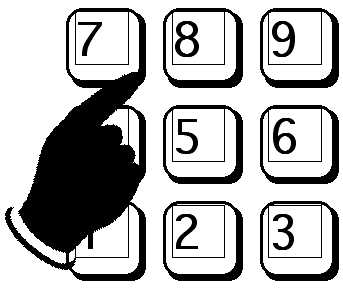When People Gain Price Tags - The New Underclass Gets Labelled
 For many financial service companies like banks, credit card providers and insurers, not only are customers unequal, but many - most, perhaps - are not profitable. Although this has been acknowledged for some time, little has been done to exclude unprofitable clients or to otherwise change the relationship between client and supplier. The reasons for this lapse in the normally fastidious management of such companies are threefold. Few companies have managed to agree internally on how 'customer value' should be calculated; fewer have customer data tracking systems good enough to accurately record a customer's worth; and even where it can be calculated, fewer still have developed the predictive tools to project what each individual's 'contribution' is likely to be in the future.However, companies are becoming increasingly vigilant in formulating individual customer profitability models, and as a result a large number of financial service providers will have to come to terms with the issue of dealing with the 'unprofitable'. Once the institutional wagons start rolling, all financial companies may begin, lemming-style, to discourage 'unprofitables' from joining or face being left servicing the new underclass rejected by their competitors. Unless new social strategies are devised quickly, the prognosis is pretty bleak. There are, however, a number of foreseeable corporate strategies that companies are likely to adopt when dealing with 'unprofitables': if their predictive models are good enough they won't take them on in the first place; they may turn unprofitables into profitables by adjusting pricing, or product, features (a strategy reminiscent of pawnbroking); finally, they might simply ask unprofitable customers not to continue being a customer (e.g. at the renewal stage for insurance).
For many financial service companies like banks, credit card providers and insurers, not only are customers unequal, but many - most, perhaps - are not profitable. Although this has been acknowledged for some time, little has been done to exclude unprofitable clients or to otherwise change the relationship between client and supplier. The reasons for this lapse in the normally fastidious management of such companies are threefold. Few companies have managed to agree internally on how 'customer value' should be calculated; fewer have customer data tracking systems good enough to accurately record a customer's worth; and even where it can be calculated, fewer still have developed the predictive tools to project what each individual's 'contribution' is likely to be in the future.However, companies are becoming increasingly vigilant in formulating individual customer profitability models, and as a result a large number of financial service providers will have to come to terms with the issue of dealing with the 'unprofitable'. Once the institutional wagons start rolling, all financial companies may begin, lemming-style, to discourage 'unprofitables' from joining or face being left servicing the new underclass rejected by their competitors. Unless new social strategies are devised quickly, the prognosis is pretty bleak. There are, however, a number of foreseeable corporate strategies that companies are likely to adopt when dealing with 'unprofitables': if their predictive models are good enough they won't take them on in the first place; they may turn unprofitables into profitables by adjusting pricing, or product, features (a strategy reminiscent of pawnbroking); finally, they might simply ask unprofitable customers not to continue being a customer (e.g. at the renewal stage for insurance).
Viewed from the point of view of the companies this is all fine, if a little bracing compared with today's laissez-faire approach. However, from the consumer's viewpoint the situation could become dire when the product s/he is trying to buy has, in effect, become a necessity - cars, homes, life insurance, plastic cards (particularly as they gradually replace money), mortgages and banking. The question then becomes one of how the financial services industry, the government, or society should react to this new situation.
The longer term options in this scenario could be to encourage the development of new institutions to deal with the 'less profitable'. Quite probably, central government may also give subsidies to existing institutions to compensate them for servicing 'unprofitables'. Finally, the government could provide service vouchers (like some form of millennial food stamp) to unprofitable customers to help them pay for services. In the absence of attention from today's champagne socialists the pawnbroker looks set to flourish once more!
Julian Berry Xjulian.berry AT berryconsulting.comX Julian Berry is director of the marketing consultancy Berry Consulting.
Mute Books Orders
For Mute Books distribution contact Anagram Books
contact@anagrambooks.com
For online purchases visit anagrambooks.com







